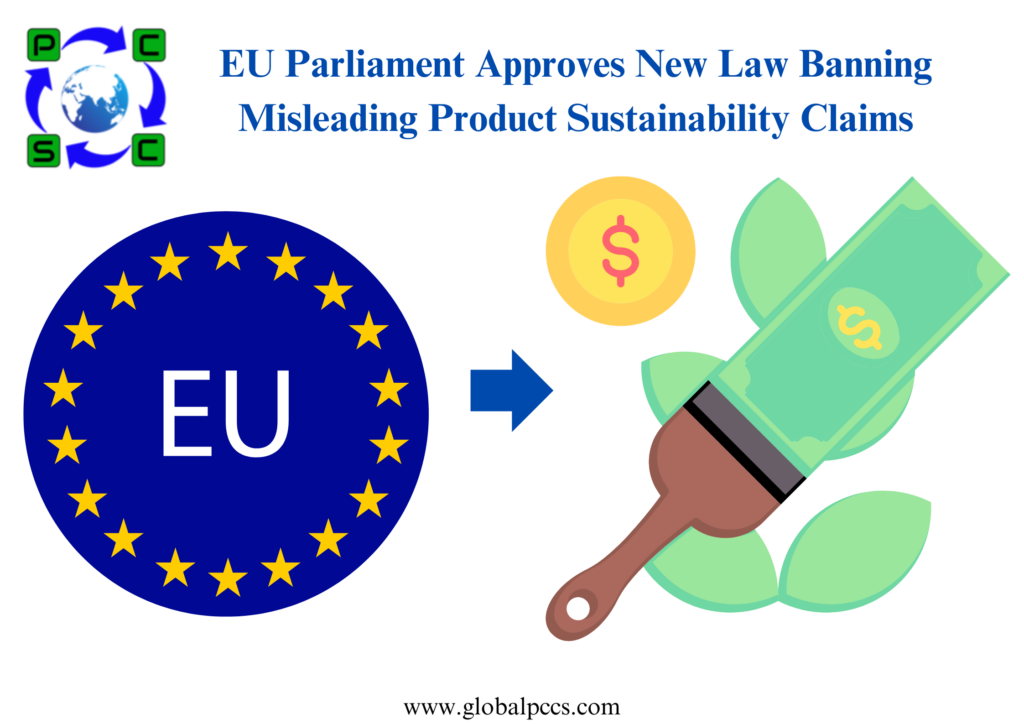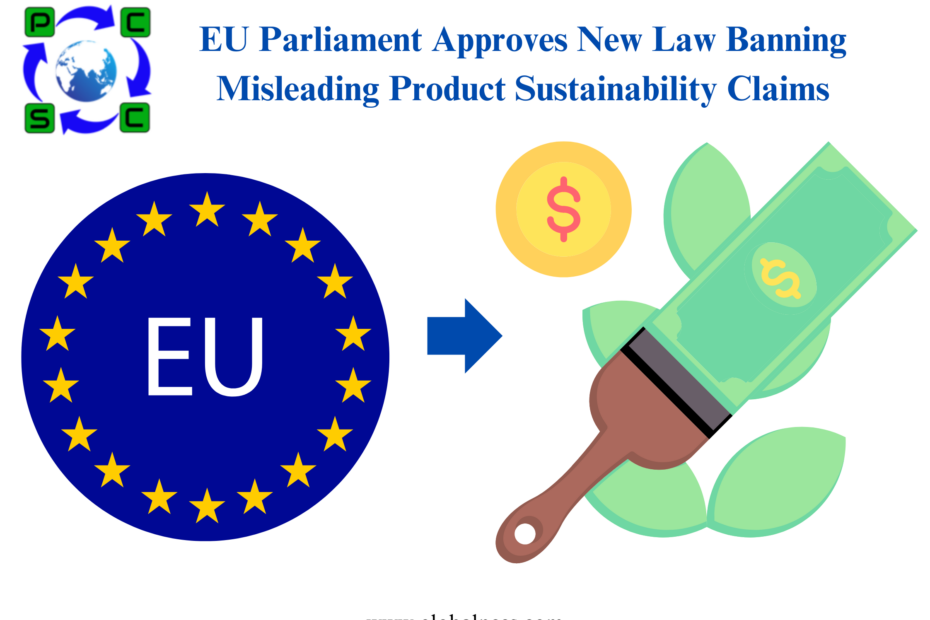 Introduction
Introduction
In a significant move towards fostering transparency and environmental accountability, the European Parliament has recently approved a groundbreaking law aimed at curbing misleading sustainability claims made by companies. The legislation addresses the growing concern of greenwashing, a practice where businesses exaggerate or falsely advertise their commitment to environmental and social responsibility. The European Union (EU) is taking a bold step to ensure that consumers can make informed choices and trust the sustainability claims attached to the products they purchase.
A new anti-greenwashing law was adopted by the European Parliament on Wednesday by a vote of 593-21. The law forbids a number of commercial practices, such as the use of generic, unproven product claims like “climate neutral” or “environmentally friendly” or the promotion of a product’s lower environmental impact through the use of emissions offsetting schemes.
The agreement comes after the EU Commission released a set of proposals in March 2022 to modify the EU’s current regulations protecting consumers from unfair commercial practices like deceptive or aggressive advertising and giving them information about products, including those related to the green transition. According to a recent Commission research, forty percent of green claims made by EU corporations were found to be wholly unfounded, and more than half of the claims were ambiguous or misleading.
Significant features of the recently enacted legislation encompass regulations intended to enhance the clarity of product labels by prohibiting the use of general environmental claims that lack supporting evidence, and restricting the use of sustainability labels to those that are established by public authorities or based on official certification schemes. Additionally, the law forbids the use of offsetting scheme-based statements, such as those indicating a product’s neutral, reduced, or positive environmental impact.
The new law also includes rules focused on product durability, requiring guarantee information on products to be more visible, and mandating the creation of a harmonized label to give more prominence to goods with an extended guarantee period, as well as banning unfounded durability claims, prompts to replace consumables earlier than strictly necessary, or presenting goods as repairable when they are not.
Before becoming a law, the new legislation needs to be approved by the EU Council, which struck a provisional agreement with Parliament on the measures in September. Member states will have two years to incorporate the regulations into their national laws when they are published in the EU Official Journal.
The EU Commission has also proposed a “Directive on Green Claims,” which aims to create additional regulations forcing businesses to prove and verify their environmental claims and labels, in addition to the new law, in order to protect consumers from greenwashing.
Understanding the Problem of Greenwashing
Greenwashing has become a pervasive issue as more consumers prioritize sustainable and eco-friendly products. Companies, eager to capitalize on this trend, sometimes engage in deceptive marketing tactics, exaggerating or misrepresenting the environmental impact of their products. Such misleading claims can misguide consumers, erode trust, and ultimately hinder genuine efforts to promote sustainability.
Key Provisions of the New Legislation
The new legislation adopted by the EU Parliament is designed to counteract greenwashing effectively. It introduces clear guidelines and standards that companies must adhere to when making sustainability claims about their products. Key provisions of the law include:
1. Standardized Definitions and Criteria: The legislation mandates the use of standardized definitions and criteria for sustainability claims, ensuring that terms such as “eco-friendly,” “green,” or “sustainable” are accurately defined and uniformly applied across industries.
2. Verification and Certification Requirements: Companies making sustainability claims will be required to provide verifiable evidence to support their assertions. Independent third-party certifications and audits may be necessary to ensure the accuracy of the information provided.
3. Penalties for Violations: The law establishes penalties for companies found guilty of greenwashing. Fines and other sanctions will be imposed on businesses that fail to comply with the new regulations, sending a strong message that deceptive practices will not be tolerated.
4. Increased Transparency: The legislation promotes transparency by requiring companies to disclose their environmental practices and policies. This information will be easily accessible to consumers, empowering them to make informed choices based on accurate and reliable data.
5. Consumer Education Initiatives: The EU will also invest in educational campaigns to raise awareness among consumers about the potential pitfalls of greenwashing. By providing consumers with the knowledge to identify deceptive claims, the legislation aims to create a more informed and discerning market.
Impact on Businesses and Consumers
The approval of this legislation marks a pivotal moment in the fight against greenwashing. While some businesses may face challenges in adjusting their marketing practices to comply with the new regulations, the overall impact is expected to be positive for both businesses and consumers.
For businesses genuinely committed to sustainability, the new law provides a level playing field. It ensures that companies adhering to environmentally responsible practices are not overshadowed by those making false claims. This will likely lead to increased consumer trust in companies that genuinely prioritize sustainability.
Consumers, on the other hand, stand to benefit from the increased transparency and accuracy of sustainability claims. With standardized definitions and verifiable evidence, they can make more informed choices aligned with their values, contributing to a more sustainable marketplace.
Conclusion
The EU Parliament’s approval of the law banning misleading product sustainability claims is a significant milestone in the global effort to combat greenwashing. By establishing clear guidelines, enforcing penalties, and promoting transparency, the EU is taking a proactive stance to protect consumers and promote genuine sustainability practices. This legislative move sets a precedent for other regions to follow, fostering a more responsible and transparent approach to environmental stewardship in the business world.
For more information on the service please book a free consultation by filling the form or writing to us at pooja.h@globalpccs.com








 Authorised IMDS & CDX Training & Consulting partner for
Authorised IMDS & CDX Training & Consulting partner for





